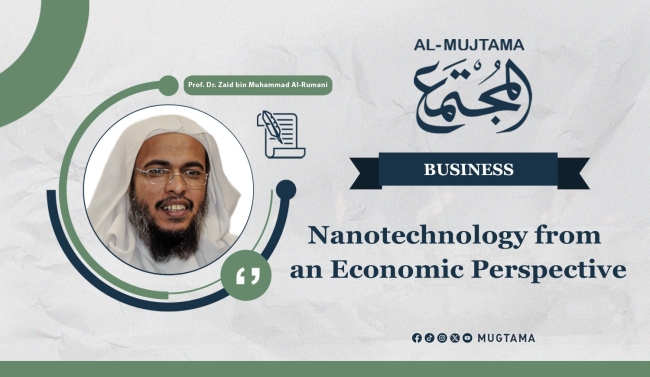Nanotechnology from an Economic Perspective
The pace of technological progress in the world is accelerating at an astonishing rate, making it difficult even for major and advanced research centers to fully comprehend and keep up with it.
Nanotechnology entered the world of technology only 20 years ago, yet its applications have rapidly expanded, permeating medical, industrial, information technology, and environmental sciences sectors, among others.
Given the importance and benefits of this technology, many countries have initiated and supported national programs and projects for nanotechnology research and applications. This is because nanotechnology uses materials with dimensions measured in "nanometers," which equal one billionth of a meter! At this size, materials acquire chemical and physical properties that make them highly useful for many applications.
However, as Toby Shelley highlights in his book on nanotechnology, "We need to ensure that the benefits of nanotechnology are not prioritized over potential environmental and health risks. We must also avoid initiating a new arms race. More positively, we should demand that the remarkable outcomes of scientific research—which might add new dimensions to our world—not benefit only those who need them the least but also reach those who need them the most."
Control over technology is the key to wealth and power. Dominance over emerging technologies shapes—and reshapes—relationships of wealth and power, whether among nations or corporations.
We can discern the status, strength, and even the geographical positioning of a society by examining its accessibility to technology. However, one must not confuse availability with its impact.
Millions of workers assemble computer components in factories across Asia. Yet, very few, if any, of them own a personal computer. This does not negate the fact that they are exposed to the social changes and health risks brought about by those factories.
Thus, the demand for establishing rules to control technological development and its applications is essential. These rules challenge the right of governments and corporations to determine which technologies are applicable—whether they are blessings or curses. They also impose the cost of producing and consuming new products, as well as introduce new ways of working, whether through new types of pollutants, occupational hazards, or risks lurking on supermarket shelves.
Exploiting the properties of materials at the nanoscale has significant applications in all aspects of life, from medical and military fields to manufacturing processes and raw material demands. There are also vast areas for the application of nanotechnology. Therefore, the economic importance of nanotechnology in the future appears enormous and astonishing.
Nanotechnology holds immense potential for bringing substantial benefits to the world's poor and affluent consumers in the Global North, as well as the well-off in the Global South. However, the pressing question remains: Who decides where research funding is allocated? Which products or processes should be banned?
In conclusion, it has been said that the promises offered by some applications of nanotechnology are so substantial that they rival the contributions of previous new technologies. By Allah's will, it will be a means to treat cancer patients and feed the world!
-------------------------------------------------------------
Contact me: This email address is being protected from spambots. You need JavaScript enabled to view it.


